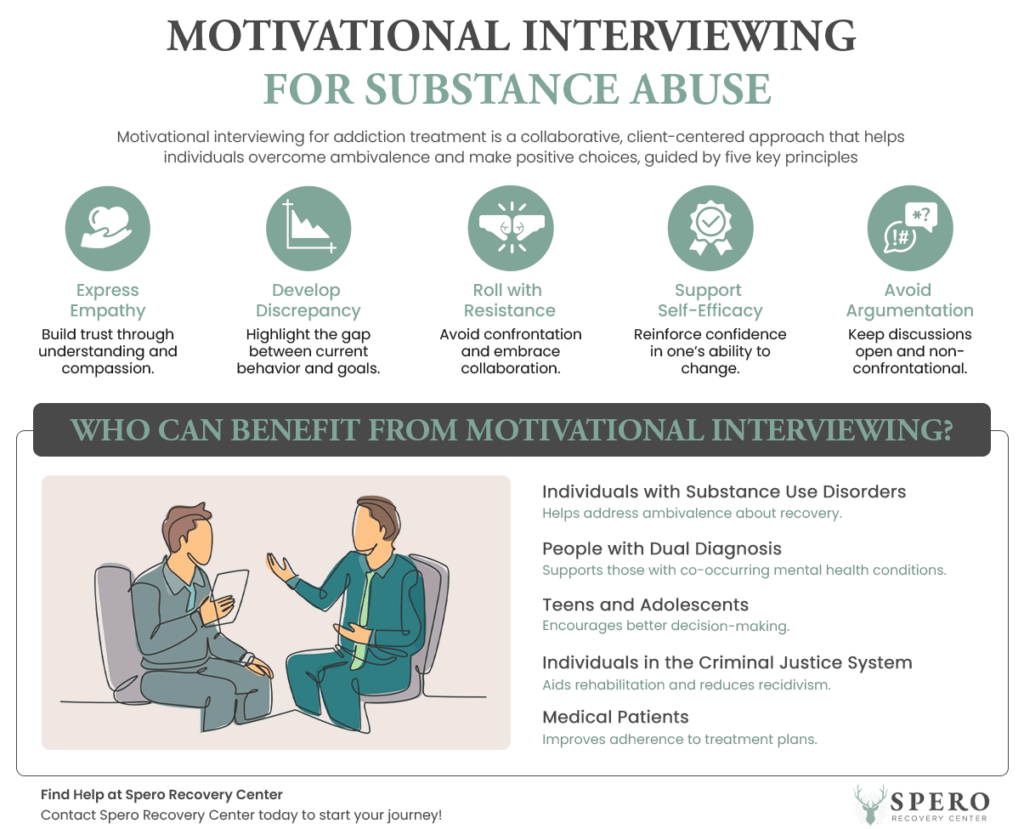Motivational Interviewing for Addiction in Colorado
When seeking treatment for addiction, there are two key components to success. Keep an open mind and have a desire to overcome addiction. Addiction treatment is only effective if the person truly wants to get better and allows help from others.
There are many different types of therapy for substance abuse treatment. One in particular that encourages those in treatment to succeed is motivational interviewing for addiction.
If you or a loved one is struggling to control addictive urges, don’t hesitate to seek treatment at our male-oriented rehab facility. The quicker you get help, the easier it is to overcome addiction.



 Motivational interviewing can benefit a wide range of individuals, including those struggling with substance abuse. Beyond just those suffering from substance abuse and addiction, others who can benefit from motivational interviewing include:
Motivational interviewing can benefit a wide range of individuals, including those struggling with substance abuse. Beyond just those suffering from substance abuse and addiction, others who can benefit from motivational interviewing include:
